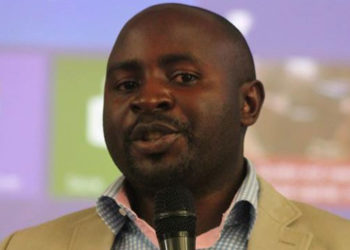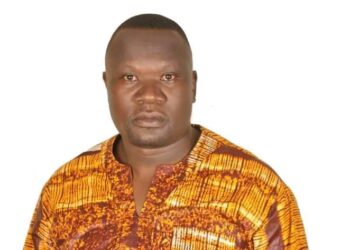By Denis Jjuuko
In his book, Uganda:7-Key Transformation Idea, Katikkiro Charles Peter Mayiga says the judiciary is one of the key areas that influence the growth of any economy. If investors don’t get justice or think won’t get it, they will think twice before investing. Imagine if you were considering investing in the real estate sector in Uganda and came across the court case involving Qualicel building in downtown Kampala, would you invest?
The court has failed to make a final decision on who the real owner of the building is among a couple of businessmen to the extent that the State Minister in charge of Kampala came up with a decision to open an account where tenants will deposit rent fees until a final decision is made. This was after rival businessmen have been involving all sorts of security agencies to enforce all sorts of court orders. Traders in this building are never sure whether they will open their shops or not. Police firing tear gas is now the order of the day. No serious real estate investor with options of investing somewhere else would consider Uganda after reading details of such cases.
It reminds me of the famous Presidential Handshake where a couple of public officials were rewarded with hundreds of millions for helping Uganda win an oil case in London, England. Had the oil case been tried by the Ugandan courts, it would still be ongoing with no end date in sight. No handshakes would have been given by now. A court case in Uganda involves adjournment after another. You can go to court today and without shame a judge will adjourn a case to November 2019. And in November 2019, the judge will adjourn it to June 2020.
I have been to court a couple of times and one thing that baffles me is how conforming lawyers have become. Most lawyers are pompous, walk with swag, and have a point on whatever topic is up for discussion until they are in front of a judge. They bow, their tongues get stuck, they are incapable of questioning a decision of the judge. When the judge says case adjourned to November 2019, they don’t question, they don’t offer counter arguments, they simply say “yes my Lord”, close their folders, put them in their leather carry bags and then walk out with swag. I don’t know whether it is their training or they just love being in court to earn appearance fees but the most timid people you will ever find anywhere in the world are Ugandan lawyers before a judge.
The timidity of the lawyers and the fact that judges look at themselves as high priests is having a significant negative impact on business growth. A case can last a lifetime in a Ugandan court. If the case is not being needlessly adjourned, the judges are away on some court recess, refresher course or attending some capacity building workshop. And then they get moved from one station to another before disposing off cases. Katikkiro Mayiga, in the book mentioned earlier, suggests that judges should be given a timeframe to dispose cases and should only be transferred when their trays are empty. When a judge is transferred and left with cases to solve, the new judge claims they are still studying the case and that can take years and before they fully acclimatize themselves with a case, they are transferred and the cycle continues. All this leads to a negative impact on business growth, which is why a government minister can come up with a decision of becoming a realtor collecting rent on behalf of quarrelling landlords.
There is need also to strengthen arbitration systems so that not everyone who has a problem always runs to court or State House. Maybe we could adopt a jury system, which can assist courts in disposing case. If there is an honest system through which incorruptible members of the public could become jurors and decide whether people are guilty or not could decongest courts and let judges only handles cases that juries can’t.
In the past, the local council system worked and a lot of cases were decided at the village level. In post 1994 genocide Rwanda, the Gacaca courts (community justice system) disposed thousands of cases — more cases than international and national courts could handle in years. Returning to such systems could help grow our economy.
The writer is a Communication and Visibility Consultant. djjuuko@gmail.com
*Image of Ugandan judges. Like they quickly dispose political cases, they need apply the same speed to other cases. Internet photo
Do you have a story in your community or an opinion to share with us: Email us at editorial@watchdoguganda.com











